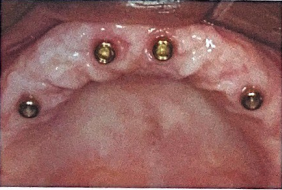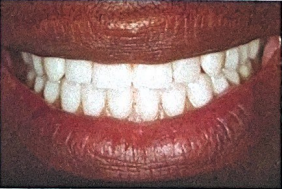Dental Implants Replace Missing Natural Teeth
Dental implants may be an effective option for replacing your missing teeth, and they are designed to blend in with your other teeth. Dental implants are metal posts that are surgically placed into the upper or lower jawbone. They can replace one tooth or several teeth by acting like an artificial root for replacement teeth. After surgery, a natural-looking artificial crown is attached to the implant post using a fixture called an abutment.
You may want to choose dental implants if:
• You have missing teeth
• Your dentures are not comfortable
• You are not happy with your removable partial dentures
• You do not want your other teeth to be reshaped to support a bridge restoration
People may choose implants to replace a single tooth, more than one tooth, or to support a full set of dentures.
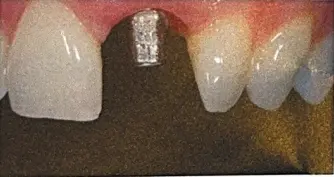
Image © Elsevier Inc. All rights reserved.
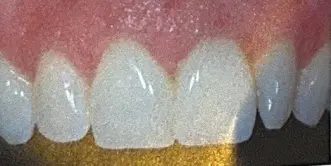
Image © Elsevier Inc. All rights reserved.
Benefits of Dental Implants
Implants offer firm support to natural teeth and have many benefits, including these:
• Implants feel more natural than removable partial or conventional complete dentures because of their secure fit.
• Implants won’t slip or shift in your mouth. This is very important for eating and speaking comfortably.
• A single tooth implant is a stand-alone unit and doesn’t involve treating the teeth next to it.
• Implants help to preserve the jawbone after teeth are lost or removed.
• Implants are a good value. They may seem like a more expensive option at first, but they can last a lifetime if you take good care of them.
Single Tooth Implant
A single tooth implant replaces the roots of the missing tooth. Another option to replace a single tooth is a bridge that attaches an artificial tooth to the teeth on both sides of the empty space. This type of bridge is not an implant, so it requires that surrounding teeth be reshaped to fit the artificial ones. An implant is a stand-alone unit and does not involve treating the teeth next to it.
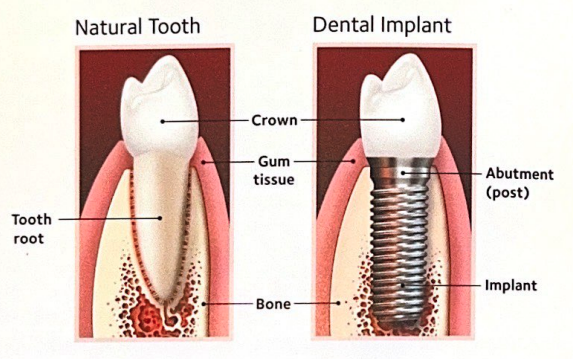
If you are missing one or more teeth, there are many reasons why you should replace them:
• You may not like how the gap looks when you smile.
• Missing teeth may affect how you speak.
• A missing back tooth (molar) can make it harder to chew.
• When a tooth is lost and not replaced, the teeth around it can shift. Shifting teeth can affect how you bite and chew.
• Loss of teeth and bone can make your face sag. You may look older.
Implant-Supported Bridge
An implant-supported bridge replaces the lost natural teeth and some of the tooth roots when more than one tooth is missing. Unlike traditional bridges, an implant-supported bridge does not need support from the teeth next to it.
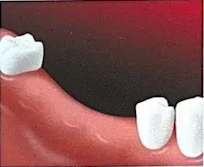
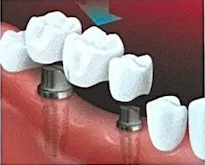
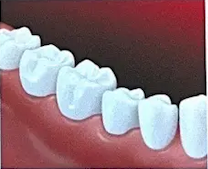
Implant-Supported Denture
If you are missing all of your teeth, an implant-supported denture can replace the missing teeth and some of the tooth roots.
Because the bone in your jaw actually grows around the implants, an implant-supported denture tends to be comfortable and stable. This allows you to bite and chew naturally.
